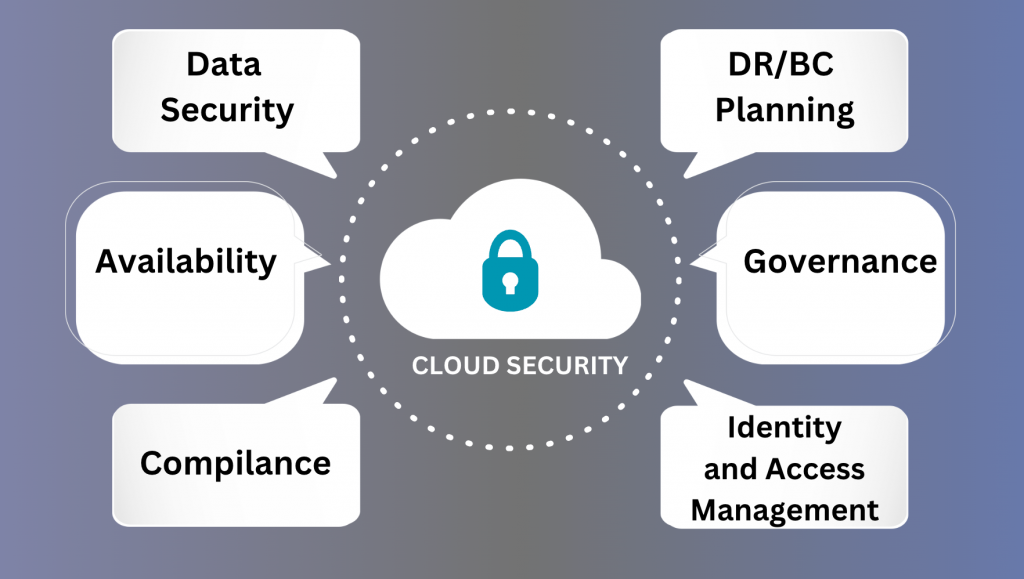Hosting using cloud resources is modernizing the digital landscape by being adaptable, scalable, and cost-effective compared to traditional hosting methods. For businesses of any size, the decision to choose between hosting options can significantly impact performance, operational efficiency, and overall cost. In simple terms, traditional hosting involves physically locating servers in one place, while hosting using cloud relies on a network of interconnected servers. This infrastructure enables hosting using cloud to provide enhanced availability, security, and scalability. It’s no surprise that hosting using cloud is quickly becoming the number one choice, as businesses around the world adopt it, leaving traditional hosting models behind.

Scalability and Flexibility
Scalability is one of the major advantages of this hosting approach over other forms. In general, when a person chooses traditional hosting, he either rents or owns a particular server, wherein his resources would be confined to that particular server alone. However, cloud hosting works on virtualized servers in the form of networks wherein one can scale up or scale down the available resources by demand.
Benefits
- Instant Resource Allocation: With virtual servers, resources can be dynamically allocated, enabling businesses to scale up or down based on demand.
- Cost Efficiency: It charges for the resources used, hence very suitable for startups and growing businesses.
- Global Reach: Cloud hosting service providers, for the most part, have data centers around the world. This makes scaling much easier to reach out to users from different parts of the globe.
- Flexibility for Diverse Needs: Hosting with cloud provides flexible deployment options-be it private, public, or hybrid cloud setup-according to specific business needs. Such adaptability allows businesses to tailor their hosting environment precisely according to their needs, which may not be easily provided by traditional hosting.
Reliability and Uptime
For a business that relies on a website always being ‘on’, reliability is one of the prime considerations. Traditional hosting models often located a website on a single server, which was another way of saying that when the server went down, the website did too. Several servers are used in a cluster to provide a high level of reliability.
Benefits
- Redundant Systems: This means that hosting using cloud services is designed to have the ability that, in case of failure at one server, another system takes over without hurting the site’s performance.
- Failover happens automatically in a cloud hosting configuration: In such a process, less or no time is being wasted in case of an event taking place along the chain; thus, it assures continuity of service.
- Disaster Recovery: Often, hosting using cloud solutions have built-in disaster recovery options to make sure your data and services remain safe and accessible even at unfortunate incidents.
- Ongoing Monitoring and Maintenance: Because of this, providers of cloud hosting are always monitoring their systems to ensure peak performance. This proactive attitude often leads to issues being detected and resolved before they could affect users, hence giving a level of reliability and uptime that traditional hosting often can’t provide.
Cost-Efficiency
- Pay-As-You-Go Model: This is one of the major advantages of hosting using cloud resources as its pricing model is on a pay-as-you-go basis, hence very cost-effective. Unlike traditional hosting, where you are mostly required to pay a fixed monthly or annual fee, cloud hosting allows you to pay only for the resources consumed.
- No Hardware Investments: Unlike traditional hosting, businesses don’t need to worry about hardware upgrades or maintenance.
- Reduced Maintenance Costs: Most traditional hosting requires the business to keep maintenance of servers, which cloud hosting eliminates altogether, with the onus of maintaining servers falling squarely on the provider.
- Lower Energy Costs: Since data centers that host cloud services are engineered for energy efficiency, this leads to lower utility bills and other environmental benefits.
- Suitable for Businesses of All Sizes: Be it a startup, small and medium enterprise, or a large enterprise, cloud hosting cost-effectively grows with your business to fit various budgets and needs. Additionally, the cost savings that come with hosting using cloud resources make it one of the prime choices for organizations looking to cut costs without sacrificing performance.
Enhanced Security

- Security Protocols: Security is one of the top priorities with hosting using cloud resources, as cloud providers invest in advanced security technologies. Hosting using cloud resources environments enjoy additional layers of security protocols aimed at data and applications to prevent any sort of outside infiltration.
- Data encryption: Most of the services employ top-notch encryption protocols to encrypt data both at transit and rest.
- Regular Security Updates: Unlike traditional hosting, where the business itself updates the security and patches of systems, cloud providers religiously perform these tasks to offer a safer environment.
- Access Control: Cloud providers allow businesses to have granular access control, where only needed personnel are given sensitive data and applications.
- Compliance and Certifications: Many cloud hosting services have conformed to standards and certifications set by the industry, such as ISO and GDPR, to instill more confidence in businesses regarding sensitive data. The burden of compliance may also be eased by hosting using cloud resources through environments that are uniform and secure, meeting the relevant regulations.
Backup and Disaster Recovery
Reliable Data Backup: Data backup and recovery are two of the most important aspects of hosting using cloud resources. In fact, most of the hosting services include automated cloud backup solutions to ensure instant access to business in the event of a disaster.
Benefits
- Automated Backups: With this hosting, the process for the backup is automated, thereby eliminating the chances of data losses because of human error or negligence.
- Disaster Recovery: Hosting server of cloud offers fast data recovery in case of a disaster. In this way, one can minimize the amount of time that will be wasted due to not being able to work on business because of data loss.
- Geographically Distributed Backups: Most cloud hosting service providers maintain their backups at several locations to protect against regional disruptions.
- Business Continuity Assurance: Continuous backup and recovery options from cloud hosting ensure that even in the case of system failures, businesses can continue uninterruptedly. This is really very important for industries like e-commerce and finance, where data availability determines the fate of business transactions.
Enhanced Performance and Speed

Performance and speed are some of the major variables in user experience and SERP ranking. Hosting using cloud resources helps with website loading speeds by keeping the loads balanced across different servers and optimizing data delivery concerning the location of the user.
User Experience and SEO Benefits
- Content Delivery Network: Many cloud providers include CDN services in their offerings, reducing load times by serving your content from the server closest to a visitor.
- High Processing Power: This hosting plans utilize the power of several servers, thus ensuring higher data processing and response times.
Frequently Asked Questions
What is cloud hosting, and how is it different from traditional hosting?
Cloud hosting involves the deployment of a network of virtual servers to host sites, applications, and data, not one physical server as in the case of traditional hosting. In such a setup, resources can be shared across a number of servers for enhanced scalability, reliability, and performance. Traditional hosting is normally designed upon a single server or just a few of them. This might hamper scalability, since if something goes wrong with that particular server, the site will be down.
Isn’t it much costlier to host a website on the cloud than on traditional means?
Though it may be true to say that sometimes, the initial costs may be higher for cloud hosting compared with the shared traditional hosting, usually hosting with cloud resources proves cost-effective in the long run.
How does hosting using cloud resources enhance website performance?
Cloud hosting enhances the performance of a website by scaling the load across multiple servers, often including CDN capabilities to make sure the content is delivered to the user much quicker based on their location. This decreases latency and improves page load times, which are crucial for user experience and search engine optimization.
Is data secure in cloud hosting?
Yes, it provides advanced levels of security including data encryption, firewalls, intrusion detection systems, and regular updates. Many times, traditional hosting will not include any automatic updates or high-level encryption options in their service offering.
What if the server fails in cloud hosting?
When one server fails, others seamlessly take over, ensuring continuous service. In fact, this redundancy is one of the prime reasons why cloud hosting is considered highly reliable as compared to traditional hosting, where a single point of failure can mean considerable downtime.
Does hosting using cloud resources support sudden spikes in traffic?
Yes, cloud hosting is such that it easily handles surges in sudden traffic. You can scale your resources up or down depending on demand, and your website will perform well every time during peak periods of traffic without any additional physical hardware.
How does hosting using cloud resources help with disaster recovery?
Disaster recovery is already included in these hosting with cloud packages, which also feature automated backups, multiple storage sites, fast restoration of data, and minimal down time for rapid business continuity in the event of a data loss incident or disruption.
Is it complicated to migrate from traditional hosting to cloud hosting?
Moreover, most of the cloud hosting providers provide cloud hosting migration services for the smooth transition of an enterprise from traditional hosting. The task can be complex or less complex according to website or application, but most reliable providers do offer tools, support, and expertise, considering which migration could take place smoothly.
What should I consider when choosing a cloud hosting provider?
Consider uptime guarantees, scalability, security features, data center location, support customer service, and pricing structure. You can choose any of those options considering what best fits your case for reliable performance, strong security, and flexible pricing options.
Conclusion
The field of online business is very competitive, which is why the right type of hosting should be employed. It is advantageous to adapt cloud hosting over traditional hosting. Specifically, the benefits are so numerous that they touch on flexibility, cost, performance, and website/application security.
With business digitization going full speed globally, the corresponding demand for reliable, scalable, and secure hosting solutions is very high.
All this goes to show that hosting using cloud resources is an elastic computing infrastructure appropriate for modern business needs—perfect for any organization, big or small. Whether it is a startup thirsting for super-elastic resources, growing businesses in need of cutting down expenses, or enterprises wanting high availability coupled with high security, hosting using cloud resources caters to all such needs. Business grows efficient, operations simplified, and customer needs catered to even better.
Shifting to cloud hosting is a very crucial ‘friend or foe’ game-changer for any business, enabling them to leverage the digital world fully.